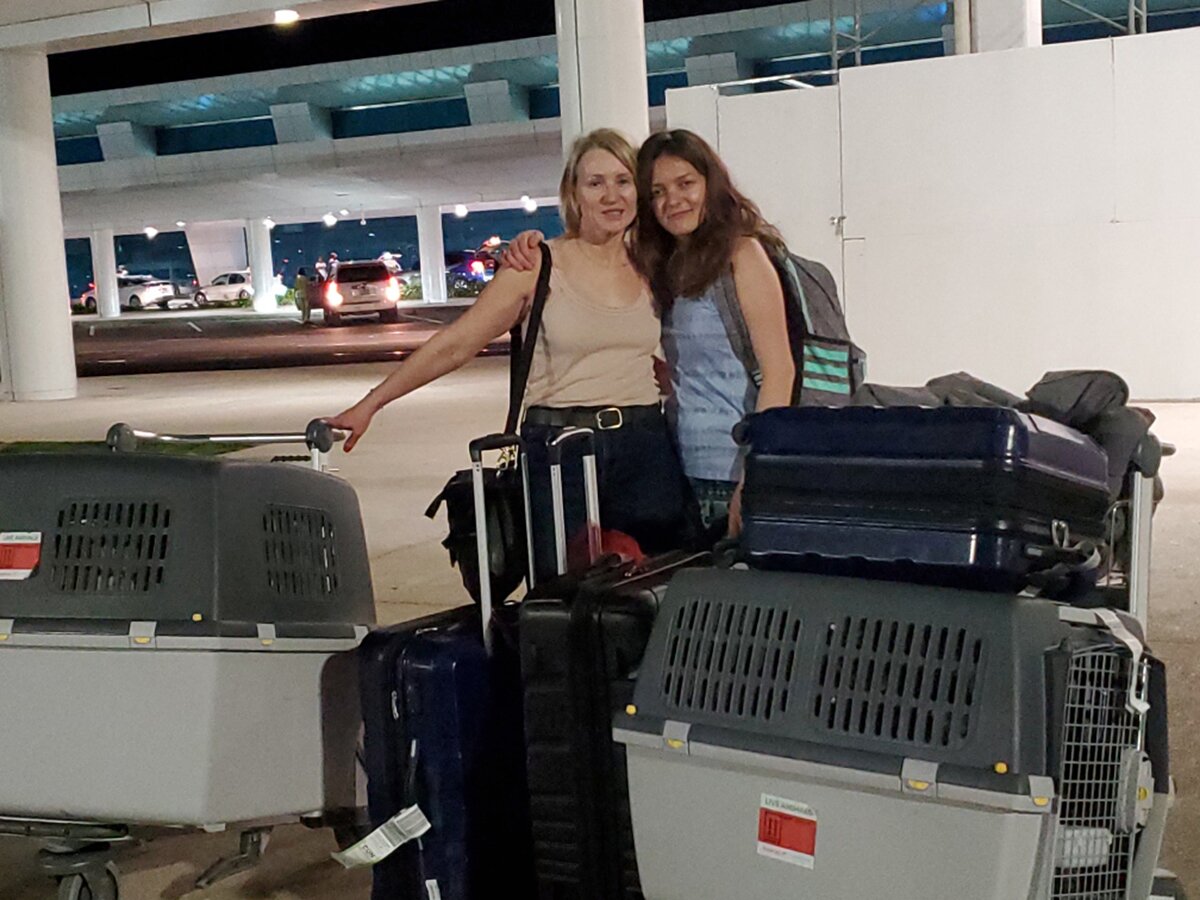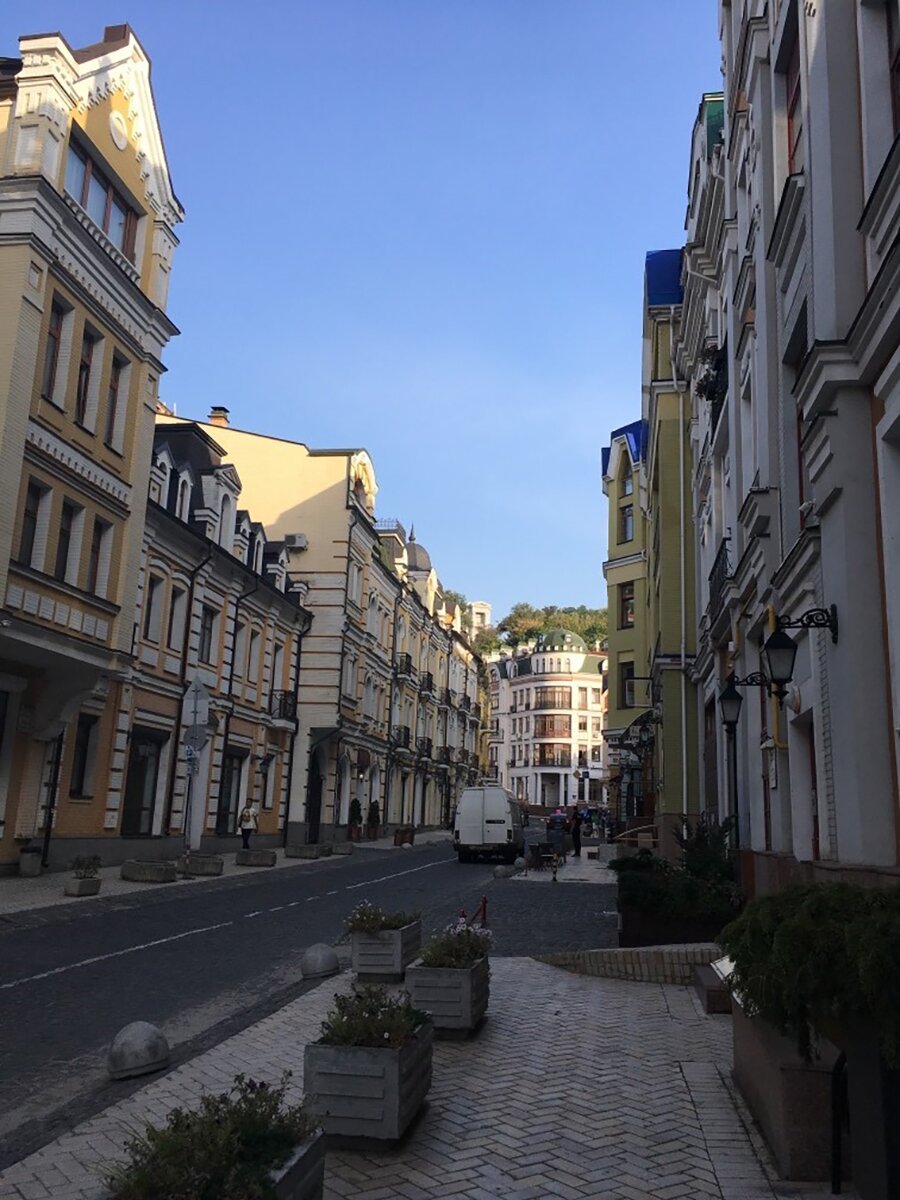‘I don’t have a country to go home to’: Local hair stylist reflects on the war in Ukraine

ENGLEWOOD, Colo. — Thousands of miles from her friends, family and homeland, Diana Schmitt struggles to sleep at night. From fielding calls from her displaced relatives to frantically scanning the news for updates, these days Schmitt keeps busy helping her loved ones find safety amidst the violence in Ukraine.
“I am [sleeping] here and there,” Diana Schmitt told Rocky Mountain PBS. “I’m trying to help my family, my friends … as much as I can.”
When Russia invaded Ukraine on February 24, Schmitt heard the news from her friends just hours before. They heard the bombs, she said. “Then I forgot what sleeping is.”
Since then, Schmitt shifted her mindset from helplessness to productiveness. When she’s not working as a “curl sculptor” at her hair salon in Englewood, Schmitt spends her time supporting her country in any way she can while working out the logistics of her mom’s relocation since she fled Ukraine shortly after Russia invaded — along with four million others.
Born and raised in Ukraine, Schmitt immigrated to the United States about seven years ago, after the beginning of the Russo-Ukrainian War. Her husband at the time (now ex-husband) was running from Russia, Schmitt said, and wanted to relocate somewhere else. “He realized there was no future [in Russia],” she explained. So they came to Colorado.
In November 2020, Schmitt opened Tame It Curl Haus, her very own studio space specifically for people with curly hair. Her plans to expand her business, including moving to a bigger space, came to a screeching halt when Russia started bombing Ukraine.

Instead, her priorities shifted to relocating her mom and her mom’s two dogs. Because the dogs didn’t meet the Center for Disease Control and Prevention’s entry requirements, moving to Colorado wasn't an option for Schmitt’s mom.
After fleeing Ukraine and traveling for four days to Vienna, Austria — where she stayed for a short time — Schmitt’s mom made it safely to Playa del Carmen, Mexico, where Schmitt will house her and her pets for the foreseeable future. Unlike the United States, Mexico doesn't require health certificate documentation for dogs.
“Obviously we have to rent an apartment or something,” Schmitt said. “My husband and I will have to pay for that, because she doesn’t speak Spanish or English. That definitely wasn’t part of our expenses.”
“I’m hoping it’ll be safer for her,” Schmitt wrote in a text message from Mexico, where she recently traveled to find her mom an apartment and a translator.
Her mom might be out of harm’s way for now, but Schmitt is far from relieved.
“My country is [at] war and it’s definitely not easy,” she said.
Her younger sister is still in Donetsk, Ukraine which has been occupied by Russia for the last eight years. According to Schmitt, her sister is pro-Ukraine, but most of the people in that region support Russia. And because she resides in occupied territory, her passport status complicates her ability to travel freely.
“Basically when you turn 25, I believe, you have to change your passport. And because she is in occupied territory … nobody's going to exchange her passport from Ukrainian to Ukrainian,” Schmitt said. In other words, her sister, who just turned 25, is forced to have a Russian passport.
“She’s scared and we’re scared,” she said, “because getting [a] Russian passport could mean that my mom and I will never be able to see her again. I don't know.”
To cope with her situation, Schmitt said, her sister spends her time volunteering and collecting donations for Ukrainians who were forced to leave the country through the Russian Humanitarian Corridor, which are safe evacuation routes for civilians fleeing the country or groups providing aid.
But Schmitt worries daily about her sister’s safety. Just recently, reports from Ukraine said Russian forces have started using white phosphorus, “a controversial chemical substance that can cause severe and indiscriminate harm to civilians.”

For Schmitt, the home she left seven years ago will never be the same. She and her husband planned on visiting Ukraine this spring, the best time of the year according to Schmitt, after the pandemic limited travel. “Because I was waiting for my status here in the U.S., so I wasn’t able to leave for quite some time,” she explained.
But that changed on February 24.
“It's just surreal. I don't think I even realized it completely ... that I don't have a country to go home to anymore, especially the part where I’m from … Now it's just this mission to help the ones who are still there,” she said. Focusing on ways she can help takes her mind off of everything she has lost, Schmitt explained.
And after more than a month since initial bombing in Kyiv, Schmitt is worried that people will soon become desensitized to the war, especially once something else starts dominating the news cycle. “I just don't want it to be just another news [story] people get in the morning,” she said, “‘Oh the crisis in Ukraine’ or whatever.”
“This is my home.”
Victoria Carodine is the digital content producer for Rocky Mountain PBS. You can reach her at victoriacarodine@rmpbs.org.
